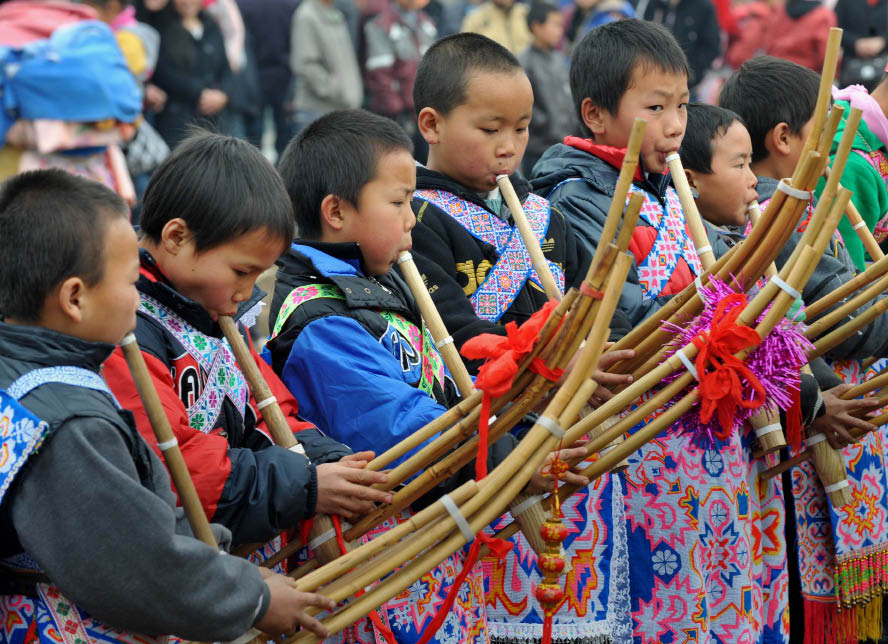Conserving Lusheng Cadences
By staff reporter JIAO FENG
PAIKA is a rural community of the Miao ethnic minority in hilly Guizhou Province. In the local language this name refers to a mountain village that produces the Lusheng, a reed instrument. This village of about 100 households has been known around the province for its Lusheng production for the past five generations or so.
Mo Yanxue, 62, is from a Lusheng producing family in Paika. He started to learn Lusheng making with his father when he was 17 years old, and has stayed in the business since. Over his long career Mo has not only honed his skills in traditional processes, but also developed new designs of the instrument that produce better quality of sound and a greater range. It was due to these achievements that in 2007 he was nominated as one of China’s first crop of intangible cultural heritage custodians.
The Lusheng is popular among ethnic minorities in southwestern China such as the Miao, Yao and Dong ethnic groups. The Miao people especially adore it and its music is inseparable from their lives. It is played during courtship, and at weddings, festivals and other big events in Miao life. It is also the vehicle of their history, which is passed down from generation to generation through songs. This is why there is the saying every Miao man carries a Lusheng.
 |
| Miao people have a special relationship with the Lusheng as its music is inseparable from their lives. |
From Winter Pastime to Village Business
Paika, a collection of brown houses raised above the mountainside on strong stilts, lies across a bridge over a crystal-clear river. Intermittent Lusheng strains drift in the air throughout the day. These are the Lusheng makers testing and making adjustments to their latest creations.
Mo’s newly built log house is located close to the entrance of the village. He runs a studio in his yard, and his two sons work as his helpers. The Lusheng made in Paika Village fall into two categories: tourist souvenirs and musical instruments for professional performance. The Mos mainly make the latter kind.
Until recent years nobody in the village, Mo told China Today, made a living solely by making and selling Lusheng. Formerly their clients were all local farmers who played the instrument at festivals or during the slack farming seasons. Low demand meant small production and consequently lean profits, far from enough to sustain a full-time business.

